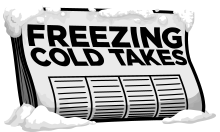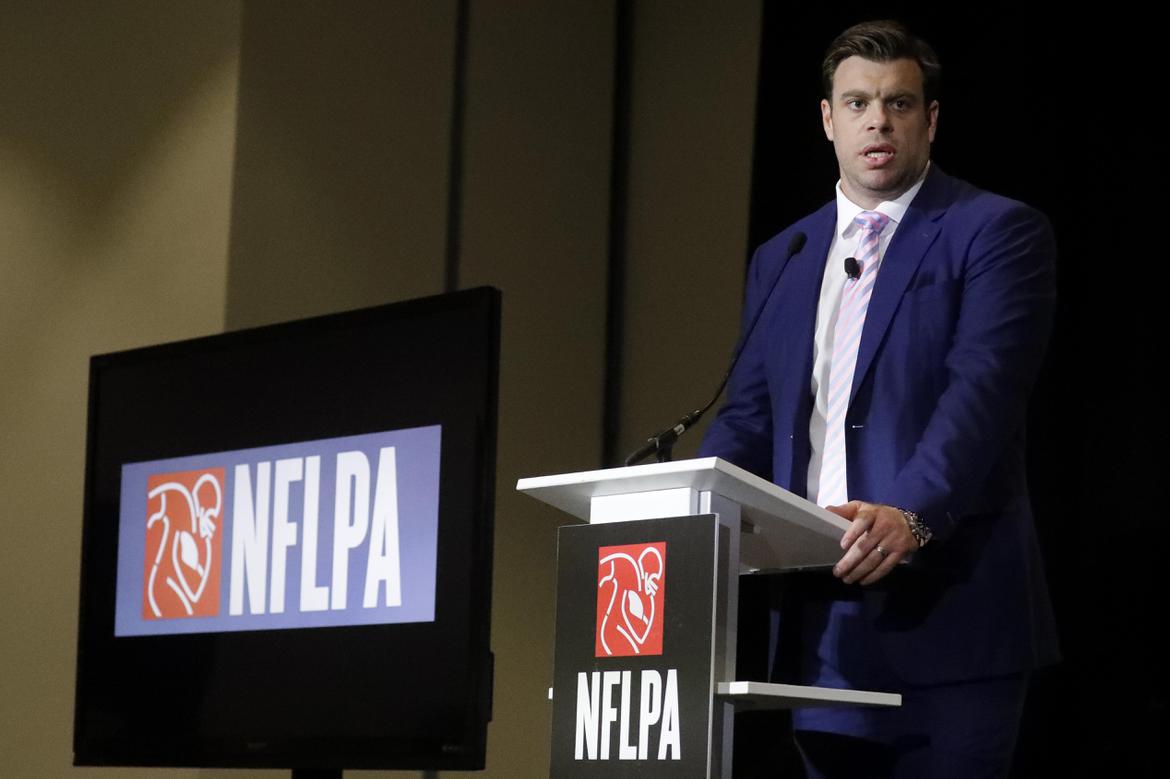Following his performance in Game 3 of the playoff series between the Utah Jazz and Los Angeles Clippers, it didn’t seem like anything could stop Utah small forward Gordon Hayward. His career-high 40 point-performance wasn’t enough to get the win but it sent a message that the former Butler Bulldog was for real and wasn’t going to lay down. In fact, his 21 first-quarter points was a franchise playoff record.
Alas, it turned out that Hayward did find an opponent who could stop him in Game 4: food poisoning.
Whether he’s back to 100 percent or not for pivotal Game 5, Hayward’s performance was a reminder to the rest of the league that the seven-year veteran has made good on being the Jazz’s No. 1 draft pick in 2010. He’s coming off a regular season in which he averaged career-bests scoring (21.9 PPG), rebounds (5.4 RPG), and FT percentage (84 percent) and was also named an NBA All-Star for the first time.
Perhaps you wouldn’t be surprised to find out that a lot of people never expected any of this to happen. Instead, as the 2010 NBA Draft got underway, they were too busy comparing him to other doomed white guys to notice his possibilities.
Bilas just damns Hayward with the Luke Jackson reference. Luke is Hayward with a perm.
— Kelly Dwyer (@KDonhoops) June 25, 2010
Bilas on Hayward: "not a great shooter. Not a great defender. Not real athletic."
— Jeremiah Jensen (@JeremiahJensen) June 25, 2010
Can anyone see success for Gordon Hayward in the NBA? I mean Jay Bilas just compared him to Luke Jackson. Not good. lol.
— Brandon Sprague (@BrandonSprague) June 25, 2010
@AsianMaven @RichNUPE they just said Hayward shot 30% from 3 in COLLEGE. Hell nah he not a sniper, he's Mike Dunleavy at best.
— Shofur (@JewishTyroner) June 25, 2010
VIDEO: #UtahJazz fans don't like the Adam Morrison..I mean Gordon Hayward pick…http://tinyurl.com/2fnchkj #nbadraft
— John and Hans (@johnhans1280) June 25, 2010
i am not drafting hayward, i just CANNOT do it. joel alexander part 2
— Frank Hanrahan (@JFrankHanrahan) June 24, 2010
Jazz No. 1 pick Gordon Hayward in projected to play like Luke Jackson in the NBA. Jackson has played for 4 teams in 4 years with 3.5ppg avg
— Ben Maller (@benmaller) June 25, 2010
And when people weren’t comparing him to other white guys, they were just flat-out saying which other guys the Jazz should have drafted instead because they’ll be better.
Have a feeling Luke Babbitt will be more successful than Hayward.
— Kevin Zimmerman (@KZimmermanAZ) June 25, 2010
Jazz will always regret taking Gordon "Adam Morrison/Jared Jeffries" Hayward over Luke "Solid NBA rotation player" Babbitt
— Daniel Poneman (@DanielPoneman) June 25, 2010
Like Hayward, Babbitt has played seven seasons in the NBA, but is now on his third team and averaging 4.7 PPG over the course of his career.
Agree. Johnson will be better. RT @Dwade: @DarrenWolfson Thinking the Jazz pick of Hayward was worse than Wolves taking Johnson. Thoughts?
— Darren Wolfson (@DWolfsonKSTP) June 25, 2010
Wes Johnson has been a serviceable role player over his seven-year career but there’s no debate who has been better or more valuable.
Many other pundits didn’t need to compare Hayward to anyone else. They just knew in their heart of hearts that he was gonna stink.
I need the Kiper sound effect, b/c the Jazz just do not understand what the draft is all about.
— Anthony Lima (@SportsBoyTony) June 25, 2010
@DKLogan7 is Gordon Hayward really…the 9th best NBA prospect?
— ™️Marcus (@TheMisterMarcus) June 25, 2010
Great move Jazz. Hayward's twin sister says she has has more competitive drive. Should have taken her.
— Clay Travis (@ClayTravis) June 25, 2010
Hayward is not athletic, he's not a great shooter, and he doesn't have a natural position. Other than that…
— Matthew Gertz (@MattGertz) June 25, 2010
Finally, there were the people who got specific enough to figure out if and when Hayward would eventually get playing time for the Jazz, if he ever would at all.
https://twitter.com/rickbozich/status/16969957478
Hayward has appeared in 521 games for the Jazz in his career. He has started in 408 of them.
Funny, I'm not expecting him to start…ever. RT @NYDNDickWeiss not expecting hayward to start as a rookie
— Justin Young (@JustinDYoung) June 25, 2010
So close. Hayward played in 72 games in his rookie season, starting 17 of them.
https://twitter.com/landrylocker/status/16973096312
To be fair, Hayward does wear suits when he’s not playing basketball these days. In his fourth season with the Jazz, however, he started every single game and has started every game he’s played in for Utah since (311 and counting).





About Sean Keeley
Along with writing for Awful Announcing and The Comeback, Sean is the Managing Editor for Comeback Media. Previously, he created the Syracuse blog Troy Nunes Is An Absolute Magician and wrote 'How To Grow An Orange: The Right Way to Brainwash Your Child Into Rooting for Syracuse.' He has also written non-Syracuse-related things for SB Nation, Curbed, and other outlets. He currently lives in Seattle where he is complaining about bagels. Send tips/comments/complaints to sean@thecomeback.com.
Recent Posts
How Cryptocurrency Influences Sports and Esports
The rise of Bitcoin and other altcoins (such as Ethereum, USDT, Ripple, and others) has led to a...
Live sports on TV & stream: TV-guide with fixture list, times and channels
Want to find out where the next game is broadcasted on TV or stream? You’re looking for a...
Mauro Ranallo and WWE agree to mutually part ways
Mauro Ranallo is leaving WWE. Ranallo had worked with WWE since early 2016, first as a play-by-play announcer...
NFL Players Can Now Use CBD within the NFLPA Agreement
In years gone by – and even today – there has been a lot of controversy over what...
Former NASCAR CEO Brian France sues @DrunkBrianF parody account
There’s been a surprising amount of litigation over political parody accounts on Twitter, from a lawsuit against Peoria,...
The art of the demotion: some of the most prominent ESPN “reassignments” that have minimized negative coverage
One particularly unusual thing with ESPN relative to many other companies is that when they make a change...